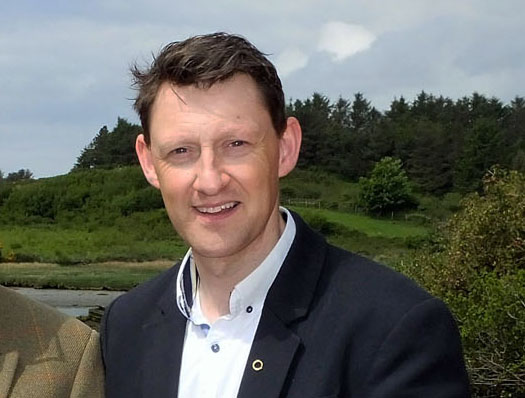
Dr. Seosamh î Ceallaigh
THE Standards in Public Office Commission (SIPO) has moved to clarify that an apology it issued to a Donegal Seanad candidate related to the quality of the Irish in emails and not for referring the matter of non-compliance to the Gardaí.
Former Falcarragh based Councillor Dr Seosamh O’Ceallaigh was one of five Donegal Oireachtas candidates who had been reported to Gardai by the State ethics watchdog relating to election donations or expenses.
The Electoral Act 1997 requires that unsuccessful candidates for the Dail and the Seanad submit documentation to the Standards in Public Office Commission within specified statutory deadlines.
The required documents include three forms, which must be completed, signed and submitted within 56 days of the election: a donation statement, an election expense statement and a statutory declaration. In the case of the Seanad election last year, those forms were due on 20 June 2016.
Anyone who does not meet their obligations under the Electoral Act is referred to An Garda Síochana, in accordance with the requirements of the Electoral Acts. Dr O’Ceallaigh was one of three unsuccessful Seanad candidates from the county, Niall Blaney and Sean McBride were the others, while Ian McGarvey and Michael Mooney (both Non Party) were among the unsuccessful General Election candidates whose names were reported to Gardai.
Ms Sherry Perreault is Head of Ethics and Lobbying Relation with SIPO. She contacted the Donegal News following an article which appeared in yesterday’s edition of the Donegal News – titled ‘SIPO apologises to O’Ceallaigh, Seanad candidate’.
“All candidates were contacted when the election was called and provided with the necessary forms. Dr O Ceallaigh originally received the forms in English, and subsequently requested the forms in Irish, which were sent to him immediately upon receiving his request.
“The guidelines and forms clearly outline the obligations of candidates under the Electoral Acts, as well as the consequences of non-compliance. All necessary forms and supporting information and guidelines were provided to candidates in the language of their choice, and are also readily available on the Commission’s website in Irish and English,” Ms Perreault said.
Having provided all necessary information, it is the responsibility of the candidate to ensure they are in compliance with the requirements of the Act.
The deadline for compliance was 20 June 2016. Candidates were given a further five months in which to comply with their obligations before non-compliance was referred to An Garda Síochana.
“We contacted candidates with information outstanding in October 2016 to give them one final chance to comply before making referrals to the Gardaí. Non-compliance was referred to the Gardaí at the end of November.
“The quality of the Irish in two follow-up emails we sent to Dr O Ceallaigh in October was unfortunately not of our usual standard. We take very seriously our responsibilities for official languages, and in our most recent letter to Dr O Ceallaigh, we apologised for the quality of the Irish in those emails.
“We did not, however, apologise for referring the matter of non-compliance to the Gardaí as was stated in the article. The Commission is fulfilling its statutory obligations under the Electoral Act in making such referrals and in publishing a report.
“As Dr O Ceallaigh has already addressed the matter publicly, I can confirm that he is in compliance with the Act as of February 2017 and that his file is now complete,” she said in conclusion.
Posted: 8:31 am April 9, 2017









